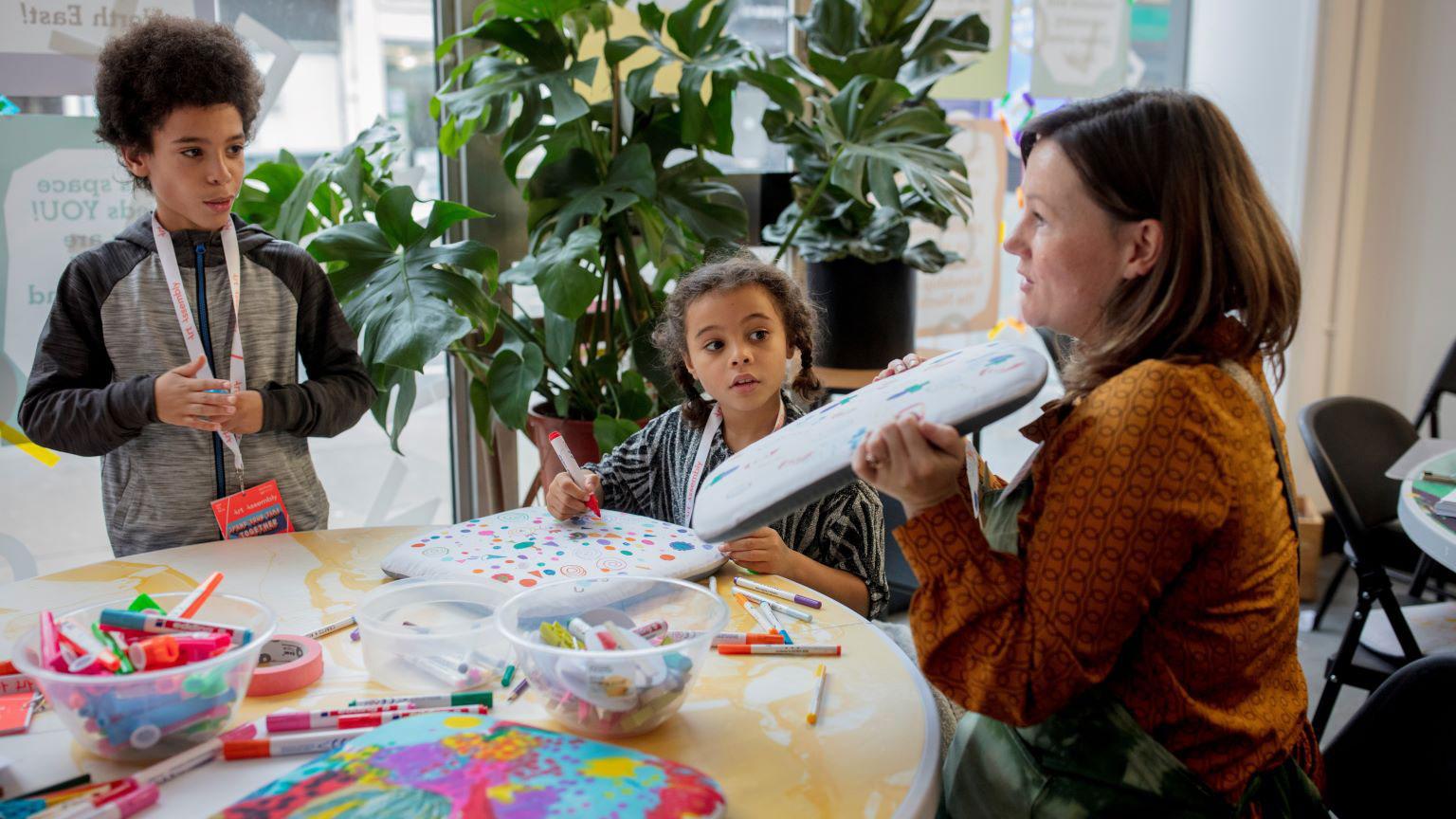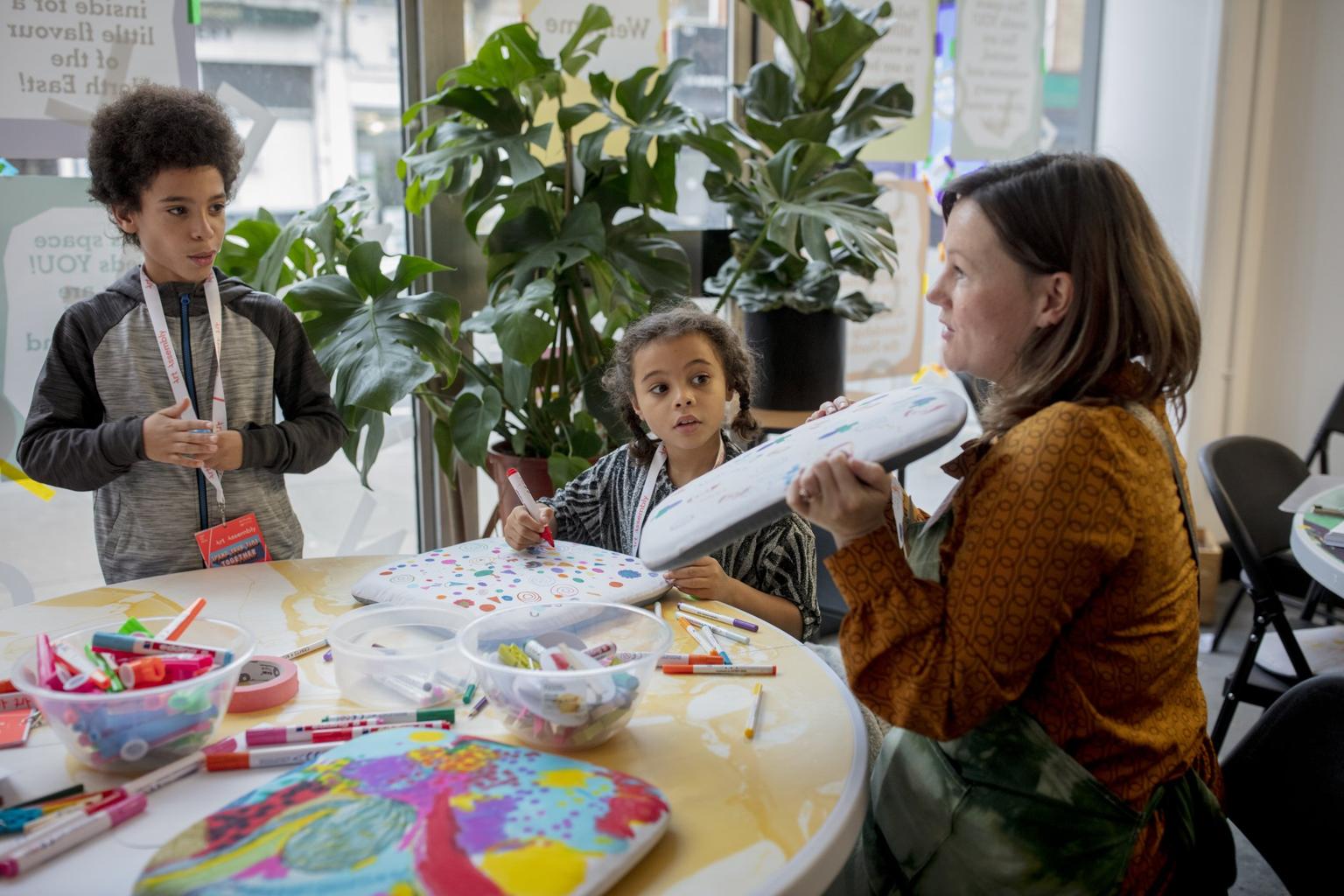New research published into what teachers want from museums

A new report by Art Fund, supported by the Clore Duffield Foundation, provides insights into what support teachers need to use museums and galleries as resources in their work, for the benefit of themselves and their pupils.
At Art Fund, we want all young people to have the chance to enjoy museums and galleries as places of learning, inspiration, fun and exchange. Not every child in the UK gets the chance.
Teachers are highly influential in the lives of pupils everywhere in the UK. Thanks to the generous support of the Clore Duffield Foundation, over the 2021-22 school year we set out to work with teachers to research what support they needed to use museums and galleries more often as resources in their teaching, for the benefit of themselves and their pupils.
In addition, we were able to make a limited number of 1,000 free ‘Teacher Art Passes’ available in return for teachers’ participation in our research via termly surveys and focus groups. Those eligible to apply for a free pass worked at UK schools where over 16% of children are receiving free school meals and thus experiencing above-average levels of disadvantage. Alongside our 1,000 Teacher Art Pass members, we also worked with research agency Teacher Tapp to test findings against a wider audience of over 6,000 teachers.
The Teacher Art Pass (TAP) provided teachers with the same benefits as Art Fund’s National Art Pass, including reduced-price access to over 250 museums and galleries, 50% off major exhibitions, an Art Map guide of over 800 places to visit across the UK, a subscription to Art Quarterly Magazine, and to ‘Art In Your Inbox’ – with exclusive features on the latest things to see and do.
So, what insights did we find? What more could be done to support teachers’ use of museums and galleries within their teaching? Would Art Pass membership increase their engagement with museums and galleries overall?
The short answer is yes. Giving teachers more access via Teacher Art Pass membership resulted in them using museums more in their teaching practice – 89% agreed that Teacher Art Pass increased their desire to visit or digitally engage with museums, and 85% found the benefits useful to their teaching practice. Across all teacher surveys and focus groups, it became clear that teachers want to use museums.
We already know that school visits to museums, galleries and historic sites are lower than they were pre-pandemic, and the TAP findings backed this up. 80% of primary teachers teachers said they took groups on visits pre-pandemic, compared to 73% since the start of the pandemic. How do we reconcile this drop in visits, with the enthusiasm and desire we heard from teachers to use cultural organisations in their teaching?
Barriers to schools visiting museums: cost + time
Aside from pandemic restrictions, the problem is down to the barriers of cost and time teachers face. The cost of transport to get pupils to museums is frequently prohibitive. Being able to walk to a museum makes a big different in how likely it is a teacher can get permission for a visit. Time to plan and organise a visit is also a big barrier. One teacher told us:
"I am 30 minutes away from Tate Britain, but going on a free gallery trip takes up to six hours to plan, including sending letters home and chasing permission slips, permission from management, risk assessment, collecting health information, cancelling school dinners, checking students have travel passes and packed lunches etc. I have one and a half hours per week planning time for all my classes."
Museums do not have any control over how much planning time a teacher has or the cost of transport, but what we can control is how we provide information to teachers. Teachers need to be able to quickly find your museum online (half do a Google search when trying to find a museum to visit) and then once on your website teachers need to quickly find information about school visits.
Key information to provide to teachers
The information that the Teacher Art Pass (TAP) teachers and those we spoke to in focus groups are looking for is:
The areas of the curriculum your museum supports
Cost of visits, including any workshops or tours you offer
Instructions on how to book a school group visit
Museum education team contact information
Pro-forma risk assessment
Recommended length of trip or size of exhibition
Facilities, e.g. lunchroom, toilets, cafe, access
Channels to communicate with teachers
In our TAP surveys email newsletters were highest ranked for museums communicating with teachers, with 72% of teachers saying they used them. The next most used medium was social media with 54%. Facebook teacher groups were also a useful communication channel, with half of TAP teachers belonging to one.
If you can, build a teacher community or network first and then communicate with them. They will then proactively read what you send.
The Wild Escape – a project for museums to build networks with schools
TAP has demonstrated that giving teachers more access to museums increases the use of museums in their teaching and pupils’ access. Art Fund has taken what we learnt from running the Teacher Art Pass R&D year and applied it to The Wild Escape, our new project that asks children to creatively respond to the issues of climate change and biodiversity loss through art in the lead up to Earth Day 2023.
The Wild Escape will embed the TAP research about how to communicate with teachers in the guidance and resources produced as part of the project. It will provide grants for museums to run their own Wild Escape projects enabling staff to implement the lessons learnt from TAP.
Art Fund also has plans to develop the Teacher Art Pass to build a community of teachers, so we can better share information and increase children’s access to the UK's museums, galleries and historic houses.
Read more about the Teacher Art Pass project and download the Teacher Insights report
